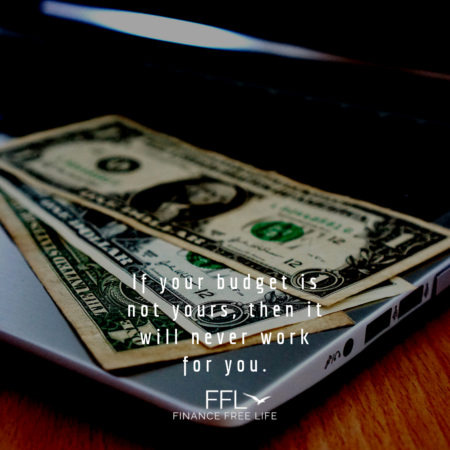4 Reasons Why Your Budget Isn’t Working… And How to Fix It
For many of us, the budget can often be the big “B” word… We want nothing to do with it. It has this negative meaning to it like it is going to restrict our spending and make our lives miserable.
Contrary to that belief, however, is the actual budget. Not a dirty word, but a working budget. If that word makes you cringe, try something else. Finance plan. Money Spending plan. Whatever works for you to keep you accountable to your money, and keeps you from over-spending. Once you find a plan that works, trust me, it’s worth it.
Whatever your method is, it’s going to take trial and error. You may try a few things that work, a few things that don’t. Remember to learn from the process, and don’t take it too hard when you make mistakes. It’s all part of the learning process.
Now, here are a few tips to help you through that learning process. These are some mistakes you are making with your budget, and why it’s not working for you.
1. You forgot some of your expenses.
This is a big mistake we see in a lot of budgets, and why they fail the first time around. Heck, this is one of the reasons why my first budget failed. I would create a working budget, after each paycheck, and account for all of my main expenses – rent, utilities, car insurance, car payment, etc. By the end of the month, though, I would come up short because I had forgotten about planning to need gas at the end of the month, paying for my Netflix account, etc.
When creating a budget and planning for expenses, it’s important to track ALL of your expenses. Otherwise, your budget will just fall short. A great way to do this your first time is to go back 3 months worth of account spending, and tracking your monthly habits. Housing, car, and utilities are easy and predictable. It gets trickier when you look at the non-recurring expenses. We recommend back-tracking three months of expenses, as well as “future track” one month out. By future-track, we mean track your expenses for one whole month by writing down everything you spend. These will give you a good cost-basis for your real expenses to work into your budget.
For more information on starting a budget, check out our post here: Start A Budget From Scratch
2. You didn’t start an emergency fund.
We hear this problem come up with students frequently. “We started a budget, but then XYZ happened and we didn’t have the money to pay for it. So we put it on our credit card, and didn’t make any progress.” The number one thing we recommend to our students is to start FIRST by making an emergency fund, as fast as possible. This is for those unexpected things that pop-up, and derail your budget when you are first starting out. At FFL, we recommend a minimum of $1000 to get started, so you can have enough of a cushion in case of big emergencies.
Here’s the catch – once you save that emergency fund, DON’T TOUCH IT!!! Unless it’s a true emergency, don’t dip into it as a “savings” account. It’s meant to be an emergency fund for true emergencies, like a flat tire, the fridge goes out, the A/C stops working, etc. The things your budget hasn’t yet prepared you for.
If you’re curious about what an emergency fund is and how it can work for you, I encourage you to check out this post.
3. You spend more money than you make.
Honestly, this one is huge. And it can be a big budget buster. Some students we have seen work so hard on creating a plan, and think they are on track, only to find they are still spending more money than they earn each month. The solution is simple – something has to give. Somewhere you need to downsize and cut back on your spending. For guidance on some spending estimates, these are some rough percentages of what your general expenses should be, of your gross income:
Housing – 35%; Savings – 10-20%; Debt – no more than 5%; Living expenses – 40-50%
4. You didn’t include “blow money”.
I saved the best for last because, in our finances, this was the problem when we first started out. We had a great budget – on paper. In reality, it didn’t work because of the “blow money” category. We call it personal money, but it really is a blow fund. Every month, we include a set amount of money that both my husband and I get to spend on whatever we want, no questions asked. It’s part of the budget, to use however we want.
There are other areas too that we’ve added fun back into our financial plan, now that we have a working budget. Each person’s budget is unique, and it has to be what works for you. We have a set amount for entertainment each month, for clothing, as well as for personal. It’s not something that is strictly all business.
So, the best thing to do is to figure out what is missing from your budget. Then, create a new budget, with a system that works for you. If your budget is not yours, then it will never work for you.

